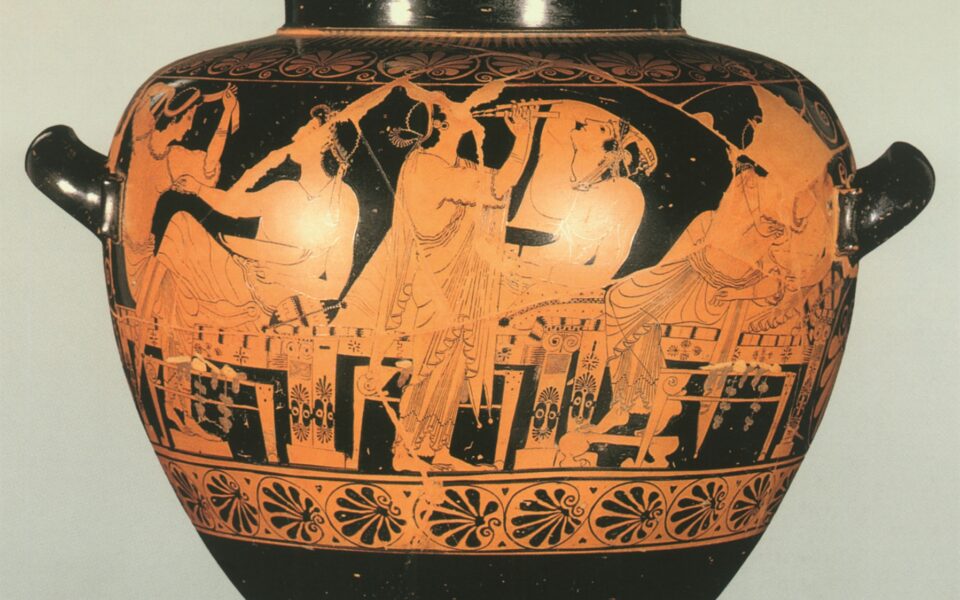Eating habits and food are “on the table” at tonight’s seminar, hosted by the Research Center for Greek and Latin Literature at the world-renowned Academy of Athens, Greece’s premier research institution.
The seminar will discuss the main features of the ancient Greek diet, and how it relates to the modern era.
“Nutrition systems are among the most stable systems over time. Wheat, vines, oil, the so-called ‘Mediterranean triad’, remain at the core of the diet until today and the new products that came later, such as potato, corn and tomato, were incorporated into a pre-existing diet,” says Evangelos Karamanes, director of research at the Academy of Athens.
Like many people today, the ancient Greeks ate three times a day, with breakfast and lunch being light meals, and the main meal in the evening. Important aspects of dining in antiquity were communal feasting and “symposia,” details of which can be found in vase paintings and the comedies of Aristophanes.
Major changes in Greek eating habits can be traced to the interwar period of the 20th century with the spread of electric refrigerators and the preservation of staple foods. Processed foods from America, including powdered milk and canned cheese, have also had a significant impact on diet patterns.
“Around a table: The food and eating habits of the Greeks in antiquity and modern times,” Academy of Athens, Wednesday, April 13, 6 pm.
With information in Greek from kathimerini.gr.












